-
Posts
31 -
Joined
-
Last visited
Content Type
Profiles
Forums
Downloads
Posts posted by Duciboy
-
-
The best pizza in my opinion is on Koh Samui - Boomerang Pizza in Lamai.
-
Westerners don´t think the same way as regular people
What was I thinking?
That's why all the prisons in Thailand are full of Westerners and no Asians - just the "irregular people" habitat the prison system. It also explains why the Western World really consist's of third world countries.
Now I know why, cause a regular person told me what the problem is. I should hand in my University Degree's and re-do them in Thailand where I will learn how to think straighter.
Do you realize how ignorant you sound?
-
When I was leaving Bangkok I left my bag (containing 2 x digital cameras, 1 x digital video camera, 2 x ipods, 2 x mobile phones and a Toshiba notebook) on the airport trolley. My wife was furious, only because of the pictures. I went looking through the airport once I realized I stuffed up and thought the items have long gone. I heard someone yelling behind me and when I turned around this young Thai girl was running towards me with my bag. I don't know how she knew it was mine, but everything was there. I had 5,5000Bht left in my wallet - kept 500Bht for a bite to eat and gave the girl 5,000Bht. As it turned out she was the trolley collector at the airport. She started to cry when I gave her the money and had to insist she keep it, I was grateful to her.
-
If you want to see some real croc's come to far north Queensland, they are plentiful in the wild - an amazing sight

The even surf the beaches



The crocs are getting smart - they have conquered the art of flight


-
Being an Aussie I think the Aussie blokes are very loud, obnoxious, rude and think their shit don't stink. The Aussie blokes I refer too are the one's on the "boys trip away". They have a "football weekend away" mentality here (which stems from the end of year football trips), so why would it be different OS. I think the Aussie couples are more composed and quiet though. Whether the Aussie's are the worst? - probably, but I think there is always a "worst" from all nationalities when a group of guy's get together with alcohol.
-
I am sick and tired of hearing about this insignificant piece of "news" that is splashed all over the media here in Melbourne. There are more important issues in the world right now and I can't believe the State (Victorian) and Federal Governments are getting involved. The Government was not really that concerned with the Bali nine - although they pretended they were). She is not on death row, she will probably get a fine and will be back in Australia soon, again splashed all over the TV and papers when she arrives at the airport. People get over it,

-
I listened to Steve (the bar owner) today being interviewed by Neil Mitchell on Melbourne 3AW radio station. Steve said that he didn't press charges and is not interested in pressing charges. Steve said the problem was (what he believes as he said he wasn't in Thailand when the offence occured) was that when the police arrived she run off and was apprehended on the beach. She apparently was very abusive to police, including the chief of police when taken back to the station.
Steve also said that now he is quite pissed off as he is looking like the bad guy and is being slandered. He said it is out of his hands as it is beyond theft now. He also said that if the lady had stayed in the bar, returned the mat and appologised the matter would have ended then and there, but she ran and was abusive and disrespectful to authorities. I just watched the news report on TV here in Melbourne and they are making her out to be the victim and now our Prime Minister is getting involved. As far as I am concerned, she should not have been rude, abusive and disrespectful to the authorities - especially the cheif of police. (I am assuming it is true as I have heard from people that witnessed the events). I would like to canvass my entire post with these words - ALLEGEDLY

BTW, steve said the mat is worth about A$60
-
3 minutes long with a real Steam Train from that era and fireworks ;w00t:
http://kanwin.multiply.com/video/item/3/Co...d_Festival_2007
The Colonel

Kan Win

Nice, looks great. Is the festival an annual event?
-
-
-
Drugs, once freely used in Australia and in other parts of the world, were, in many cases, available without prescription. Many were originally thought to be relatively harmless. Some are now completely banned, while others are in limited supply on the most restricted basis only. When freely available, they were promoted as being harmless. Heroin, cocaine, the amphetamines, morphine, Mandrax and phenmetrazine were all claimed to be non-addictive.
It is not sufficient to compare each substance to alcohol and tobacco. Alcohol and tobacco should not be the benchmarks by which all drugs are compared. To do so is misleading, given the known toxicity and physiological damage that these substances may cause. There is no successful role model for drug legalisers to follow, and, without such a model, theories and hypotheses are simply not good enough.
Two theories commonly advanced here are that:
* if illicit drugs were legalised, then drug prices would fall
* illegal drugs are too expensive and sometimes difficult to obtain.
The truth is that cheaper drugs have not helped the countries in which this has occurred. Indeed the very opposite has happened. Cheaper drugs have led to more widespread drug-taking. Current examples of cheap, readily available drugs include: 'crack', the 'poor man's cocaine', which has lead to wider use in the United States; affordable heroin on the streets of Bombay and Calcutta; widely-used cocoa paste in Lima and cheap hashish in Cairo, which even the poverty-stricken can afford. Historical examples include the Corn Laws in Britain, which resulted in Britain being deluged with cheap gin and with an epidemic of alcoholism which has not since been repeated. Easy access to cocaine in Germany in the 1920's caused many health and social problems. Legal cheap cocaine was freely available in the US in the 19th century. The cheap and ready access to amphetamines and heroin in Sweden in the 1960's lead to an epidemic. Cheap amphetamines saw drug epidemics in Japan in the 1950's and 1960's. Egypt suffered a cocaine and hashish epidemic in the 1920's. None of these countries controlled the situation by increasing availability and lowering the price.
The theory is that drug legalisation would destroy the financial base of organised crime and therefore minor crimes against property would be reduced. The claim is that the laws have failed. The facts are that drug use itself is actually the cause of much sociopathic and 'criminal' behaviour. Many users commit crimes completely unrelated to the cost of the drug. New South Wales Police (Australia) submissions show that approximately half of all criminal addicts have been charged with previous criminal offences before their involvement with drugs. These figures also show that incest, sexual abuse and motor accidents are associated with drug use. According to the NSW Police Submission to the National Crime Authority, "there is likely to be a substantial increase in the rate of road deaths and accidents due to drug use" (if drugs were legalised), and "legalisation will not eliminate crime".
To suggest that organised crime exists because of drugs is erroneous. Organised crime existed long before drugs became a problem. (eg the Chinese Triads and the Sicilian Mafia). The reality is that, if illegal drugs were legalised, organised crime would still exist. Most of the legalisation arguments collapse because, unless all countries are willing to make every drug available to any person in unlimited quantities and combinations, upon the demand of the user, then there will always be a place for a blackmarket and criminal exploiters.
Organised crime can only be addressed by attacking corruption at all levels in our society. It is corruption that makes organised crime possible. In New South Wales (Australia), 20% of car theft is controlled by organised crime. Yet nobody is suggesting that car theft should be legalised to eliminate organised crime. Nor is anybody suggesting that cars should be provided free for those who want them, merely to take the profit out of the car-theft industry.
Laws cannot make a wrong into a right. To claim that the laws have failed, because a minority of people are not deterred by them, makes no sense. In drawing the line between what is and what is not permissible, criminal law is directed not only toward the lawbreakers but towards the law-abiders.
Any government that is willing to experiment with legalisation policies, without any proven model to follow, is irresponsible because it is placing a large portion of the naive community at risk, not to mention the children. Are Government's naive enough to take this enormous step? A new super-bureaucracy would have to be created to control distribution, prices, strengths, purity and quantity for dozens of illegal drugs, with potentially hundreds of future new variations to be introduced. If the illegal drugs were still governed by some restrictions, how would the bureaucracy regulate the different degrees of tolerance that the users would have? What penalties would be invoked for breaking these controls?
It is inconceivable that all drugs would be legalised. There would have to be a dividing line somewhere across the spectrum, as some of these chemicals can never be released. Would the dividing line allow marijuana, cannabis resin and hashish oil? If so, what concentration of their psychoactive ingredient, tetrahydrocannabinol - 1%, 10%, 20% or 60%? Would it allow pethidine, morphine and heroin and, if so, in what strengths? Would cocaine be legalised along with its other forms - basuco paste and 'crack'? What percentage of cocaine would be legal - 100%? Would the dividing line allow the use of MDMA ('Ecstasy'). If so, how many tablets could be purchased at a time? What of the hallucinogenic drugs: LSD, mescaline, PCP ('Angel Dust') and peyote? What strengths and in what quantities? Would all amphetamines, including the latest form of methamphetamine, 'ice', be legal? What of the once-thought-safe phenmetrazine? What strengths and what forms and what quantity? Would Mandrax, once again, be available with little control? How many barbiturates would it be safe to supply? Would it be legal to smoke opium again? Would 'Burmese no. 3 grade heroin' be legal and, if so, would Mexican 'Black Tar' be controlled or not? What of 'China White'? The list is endless.
Which of these drugs should be legalised? All or only some? According to what criteria would they be legalised? In what strength, concentrations, forms and quantities? What body or new government authority would determine the criteria? Or would there be no controls or limits? From whom and where would these products be distributed? Would they be available at all hours? Yet if they are not all legalised, then nearly all the arguments for legalisation amount to nothing. Where the dividing line is drawn between what is legal and what has to be restricted, the criminal millieux will deal in and promote the remaining restricted substances. Yet there is no way that all the presently controlled drugs could be made legal. Their effects on our society would be obvious.
If illicit drugs were legalised, who would be allowed to buy them? What age limits would be set? Would sales be restricted to dependent people? Would cocaine or heroin be restricted to cocaine-dependent or heroin-dependent persons respectively? Could a heroin addict purchase PCP or cocaine? Would the combined use of cocaine and heroin (speedballing) be legal? Who and what body would determine if a user was dependent on amphetamines? If only dependent persons were allowed to purchase their drugs, where would the recreational and experimental users obtain their supplies? If it were possible to answer these questions satisfactorily, in what quantities and in what form would they be supplied? Having supplied these preparations in multi-dose forms, how would the flow of these drugs to the general population be prevented? Who would be the suppliers - pharmacies, government stores? What hours would they be open? Should the drugs be available on prescription and from all doctors? How would a refill be allowed? Or should they be available merely on demand?
If drugs were legalised, what controls would be placed on users? Would those with psychoses be allowed to purchase drugs? What of incompatibilities with prescribed medication? How would a medical practitioner know what a patient was self-administering? Would workers in vital industries be allowed to use these drugs? What categories of workers would be allowed to use them and what categories would not? What consideration would be given to marijuana, with its long half-life compared to heroin and cocaine with very short half-lives? Most establishments allow staff to use alcohol and coffee. What would they do about the use of legalised drugs? As with tobacco now, would there be drug-using and drug-free zones?
Other issues which need to be addressed include civil liberties, the countries which supply drugs, the myth & mystique of drugs, ignorance of the pharmacology of drugs, financial considerations, the 'victimless crime' argument, responsible usage, the problem with heroin, varying levels of dependence with different drugs, and de facto legalisation through common usage.
The questions posed are difficult and I cannot answer them. But that is not my problem. It is the drug legalisers who must provide satisfactory answers if their position is to be given credibility. They claim that the 'war' against drugs has been lost, and therefore that we should legalise drugs. Firstly, the so-called 'war' against drugs has never really started. Secondly, if one accepts the position that there is a war, then what sort of defeatist attitude are they promoting? From their point of view, one could argue that we are losing the war against crime, and therefore that we should legalise crime. In reply to statements that there may be no answer to the drug problem, the United Nations states:
"The permissive and fatalistic attitudes of the past have allowed the drug problem to reach epidemic proportions which we face today. But there is reason to be hopeful, the nations of the world have recognised that drug abuse has grown at an alarming rate. Progress is being made in areas where intense and concerted pressure has been applied to all aspects of the problem: abuse, supply, production, trafficking and treatment. The drug problem cannot be solved in a day or a year, but with the active participation of peoples, organisations and nations, the problem can be ultimately be solved."
Countries that will not countenance legalisation are Singapore, Taiwan, Germany, Great Britain, Sweden and Japan - not exactly backward countries. Other countries, including China, Egypt, Turkey and Nepal, have introduced tough counter-measures to control the spread of drug abuse in their countries. Yes, there are other remedies, but not the soft option of quitting and submitting to the struggle by legalisation. Like the Westminster System of government, our present system is far from perfect, but consider the alternatives.
There are two realistic criteria to consider before releasing any chemical or drug onto the market: is the chemical relatively safe and is it of any benefit to mankind? As with controlled pharmaceuticals, the burden of proof that the benefits of legalisation of the currently illegal drugs outweigh their disadvantages, rests with those who seek to legalise the use of these substances.
-
He is obviously not that smart - he got caught in the first place didn't he

-
To me the Thai's drive like the Aussie's walk on the footpaths and I drive accordingly. When the engine starts I go into ninja mode


-
I really don't care. Call me what you want - I have more concerning issues in my life to worry about

-
Singapore airlines are great - I always fly with them and my second choice is Emirates. I have never had a problem with their service like I have many of the other airlines.

-
Hi, Customs seem to be getting more and more stupid/paranoid/nit-picking etc.
Family of my Mate's thai wife have given me a bunch of Meds to take back for her... all legitimate stuff ... but I think I read somewhere about restrictions... and after getting a full search last year.... I just want to be on the safe-side of things.
Here's what I've been asked to take....
5 packs X 10 Bisolvon (anti -phlegm / mucus)
Tylenol 1 pack x 500
Actifed 10 X 12 Tablets
Cettec 10 X 10 anti - rhinitis
Amoxycillin 6 X 10 anti-biotics
Maybe it is just prescription drugs that are 'banned' ie amoxycillin, but I am not sure...
Anybody know what is OK and what is not OK???
Every time I travel with my medications I have a letter and script from my doctor.
From the Australian customs website: http://www.customs.gov.au/site/page.cfm?u=4369#e1053
Antibiotics (restricted import) - this would cover the Amoxycillin
Description:
Traditional antibiotics such as penicillin and tetracyclines as well as other substances including the sulpha drugs, nitrofurazones, dapsone and rifampicin. Anti-viral medicaments are not antibiotics.
Exemption:
You do not need a permit to import antibiotics where:
- you are a passenger on a ship or aircraft with no more than three months supply (at maximum recommended dosage) for your personal use, or that of a relative, and you have the antibiotics on your person or in your accompanied baggage; or
- you are a passenger on a ship or aircraft with no more than three months supply (at maximum recommended dosage) for an animal under your care travelling on the same ship or aircraft.
- you are a member of group visiting Australia to participate in a national or international sporting event and the antibiotics are to be used for the treatment of a member of the group or an animal imported and in the care of the group
Description:
Traditional antibiotics such as penicillin and tetracyclines as well as other substances including the sulpha drugs, nitrofurazones, dapsone and rifampicin. Anti-viral medicaments are not antibiotics.
Exemption:
You do not need a permit to import antibiotics where:
- you are a passenger on a ship or aircraft with no more than three months supply (at maximum recommended dosage) for your personal use, or that of a relative, and you have the antibiotics on your person or in your accompanied baggage; or
- you are a passenger on a ship or aircraft with no more than three months supply (at maximum recommended dosage) for an animal under your care travelling on the same ship or aircraft.
- you are a member of group visiting Australia to participate in a national or international sporting event and the antibiotics are to be used for the treatment of a member of the group or an animal imported and in the care of the group
Drugs and narcotics (restricted import)
Description:
Drugs being chemicals and compounds as listed in Schedule 4 of the Customs (Prohibited Imports) Regulations. This includes
- isomers or mixture of isomers of a controlled chemicals or compounds;
- a derivative of a controlled chemical or compound, including isomers and mixtures of isomers;
- substances or things that contain controlled chemical/s or compound/s, including isomers and mixtures of isomers, and derivatives; or
- other chemicals and compounds that are an immediate precursor to a controlled chemical or compound.
Exemption Passengers arriving on board a ship or aircraft do not need a permit if:
- the drug is required for their own medical treatment or the treatment of another passenger or animal under their care; AND
- has been prescribed by a medical practitioner or veterinarian and the original prescription is presented upon arrival; AND
- the amount of drug/s does not exceed three (3) months supply at the maximum prescribed dosage.
If the prescription is not in English, then a version translated into English must also be presented. The exemption only applies to drugs carried in the passenger's accompanied baggage.
Passengers aged 18 years or more do not need a permit to import kava if:
- the kava is in either root or dried form;
- the amount of kava does not exceed 2 kilograms; and
- the kava is carried in the passenger's accompanied baggage.
These exemptions apply only to passengers. Any amount of controlled drugs imported by other means such as post or air cargo require a permit.
- you are a passenger on a ship or aircraft with no more than three months supply (at maximum recommended dosage) for your personal use, or that of a relative, and you have the antibiotics on your person or in your accompanied baggage; or
-
I would stick to 100 kph going through Surat province. Anything over that may get you stopped unless you are lucky. Except on the day of the coup, every time I have gone down to NST, the speed cops have always been out in Surat.
Thanks for the info Mosha, will heed your advice and keep to 100kph on the open roads
-
Bangkok to Phuket, Patong, 9 hours. I did it 3 weeks ago, its a great drive.
mind the trucks when over taking, and dont upset any busses...
plenty of stops with decent food, and plenty of gas stations.
stay on the right lane and watch your speed, I never went over 140.
EXcellent, thanks for the info, much appreciated

-
Excellent keemapoot, will grab the latest road atlas in Bangkok and will be stopping off in Krabi. Googled Ao Nang Beach and have decided to stay a couple of nights, looks awesome. much appreciated

-
When a British Airways Jet lands at Melbourne's International Airport - you can still hear the whines after the engines have stopped. That's how we know more pommies have arrived. The Brits are just pissed off cause the convicts came to Australia and they stayed in England. They realized they made a mistake


And now that air transport finally arrived in that god forsaken desert region off SE Asia, we gotta put up with all those awfully sweaty ozzie bastards working in London getting the best experience to date of history and culture in the first couple of hours (and it takes an hour to get through immigration and an hour to reach central London).


English + Culture

-
When a British Airways Jet lands at Melbourne's International Airport - you can still hear the whines after the engines have stopped. That's how we know more pommies have arrived. The Brits are just pissed off cause the convicts came to Australia and they stayed in England. They realized they made a mistake


-
The Patong Deli -
Ratutit Rd. (aka the middle road) turn down the one way street that runs south through patong the deli will be about 400 meters up on your left hand side. The hotel that overshadows the deli (also has a bigger sign out side) is called the "shamrock inn" Parking is on the street so be on the look out.
Happy hunting
Edit: Spelling
After grabbing your jar of vegemite, walk another 100 meters down the road to Na's Bar (opposite Tiger Pool Room), drop in have a beer and say g'day to Ken and Na - good friends of mine. (even though Ken is from W.A.
 )
) -
Last jar of vegemite I bought was at the supermarket in the Tokyu Store in the MBK Center
edit: March 2008
-
I've done the trip probably 20 times in the past 12 years or so, most recently a month ago. There have been some changes that might influence your choice of route.
For years and years, the best way was to turn left off the 41 onto the 401 around Surat Thani, without ever going into Surat of course. However, I've just been that way, and there is very much road works going on and it's a pain. Of course, that way also has the slow big trucks and buses.
The best way today is to continue on the 41 past the 401 until you reach the NEW HIGHWAY 44, then continue on that until you hit highway 4, which will take you to Phuket, and also to Krabi if you'd like to see that on the way. Breathtaking rising mountains and things to be enjoyed along this way, and it's all dual carriageway the whole way on the new highway.
I've never gone the high route to Ranong, etc., so can't comment on that.
Have a nice drive.
Cheers keemapoot, thanks for your advise and input, I think Krabi sounds nice to stop off along the way, never been there before. The way people are replying, I wont need a road map. Everyone is giving the routes and route numbers to take, fantastic
 and I am sure we will have a nice drive
and I am sure we will have a nice drive 
.png.3b3332cc2256ad0edbc2fe9404feeef0.png)







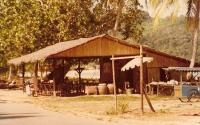

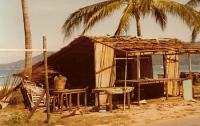
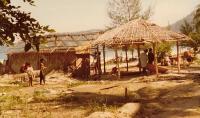

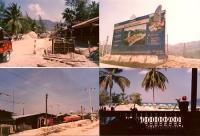
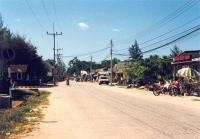

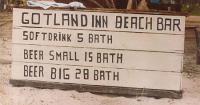

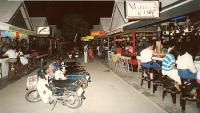
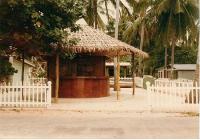
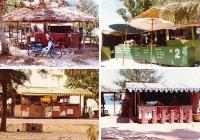
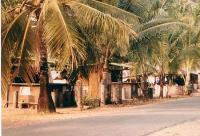
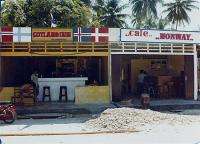
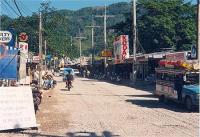
Ducatti Pattaya
in Motorcycles in Thailand
Posted · Edited by Duciboy
Nice...... I will be moving to Bangkok early next year and will be bringing my two bikes. Hopefully it will be cheaper buying belts, filters etc - parts in general, than having them sent over from home.